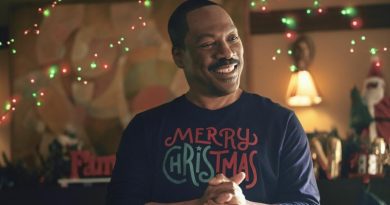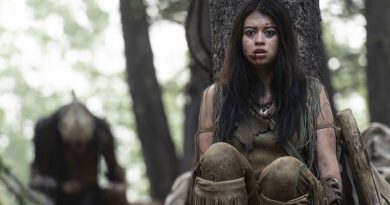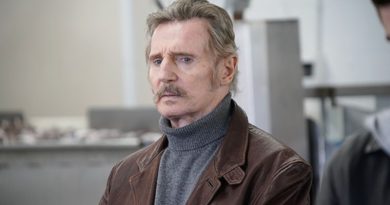Mufasa: The Lion King (2024) Review: A Visually Stunning But Narratively Surface-Level Prequel/Sequel Hybrid
It’s amazing how an expensive cash-grab of the live-action/CGI hybrid remake of The Lion King still manages to score over US$1.6 billion at the worldwide box office, more than enough to warrant a follow-up in the form of Mufasa: The Lion King. A blend of prequel and sequel, even though it leans more on the former with Barry Jenkins unexpectedly calling the shots as he made a big leap from small-scale dramas to big-budget studio features.
Jenkins, of course, is the director behind the Oscar-winning Moonlight and his equally acclaimed follow-up If Beale Street Could Talk. Mufasa: The Lion King marks his return to feature filmmaking since that 2018 romantic drama. When I learned he was attached to direct The Lion King follow-up, I was worried he was going to be more of a work-for-hire controlled by the studio executive rather than a visionary director with a voice of his own.
Well, after watching Mufasa: The Lion King in its entirety, there are flashes of brilliance within Jenkins’ direction but not enough to elevate the movie into an above-average effort. Working from Jeff Nathanson’s screenplay, who also wrote the 2019 remake, the story actually has potential since it explores the familiar themes of brotherhood and friendship between Mufasa and Taka since they are just cubs (voiced by Braelyn Rankins and Theo Somolu respectively).
We learn they first met under the unlikely circumstances after Mufasa is swept away by the flood, causing him separated far away from his parents (Keith David’s Masego and Anika Noni Rose’s Afia). After Taka saves him, they subsequently become best friends, even though the former’s father Obasi (Lennie James) isn’t pleased with his son bringing back a stray lion like Mufasa. Taka’s mother Eshe (Thandiwe Newton), however, takes good care of Mufasa.
Mufasa and Taka eventually grow up (now voiced by Aaron Pierre and Kelvin Harrison Jr.) and trouble soon arises when the fearsome leader of the white lions, Kiros (Mads Mikkelsen) is seeking vengeance for the death of his son. Mufasa is tasked to take care of Taka since the latter is the sole heir to Obasi’s royal bloodline as they are forced to leave their home.
From there, they embark on a long journey in search of the fabled place called Milele. They come across a lioness named Sarabi (Tiffany Boone), whose scout is a hornbill Zazu (Preston Nyman) and later, a young wise mandrill Rafiki (Kagiso Lediga). The journey, of course, is without its obstacles since Kiros and his pride of white lions are tracking them down.
Told in extended flashbacks by the older Rafiki (John Kani) in the present day to the cub princess Kiara (Blue Ivy Carter), the daughter of Simba (Donald Glover) and Nala (Beyoncé Knowles-Carter) along with Pumbaa (Seth Rogen) and Timon (Billy Eichner), I can see Jenkins is trying to give us a subtly resonant drama building up Mufasa and Taka’s character arcs from friends to eventual enemies and how Taka gets his scar. I’m not going to delve deep into the retconning part regarding the relationship between Mufasa and Taka that caused lots of fan backlash when the teaser trailer made its debut on YouTube seven months ago.
Personally, I’m more disappointed about Mufasa: The Lion King suffers from a surprisingly surface-level storytelling, especially given Jenkins’ calibre as a director. It makes me feel as if his creative freedom is restricted in favour of a corporate by-product that plays strictly by-the-numbers Disney formula. It’s not like Jenkins lacks trying here, evidently in his better-than-expected handling in the action scenes. His dynamic camerawork, coupled with Dave Metzger’s riveting score in some of the movie’s thrilling moments (the flood sequence comes to mind) deserves praise.
The voice cast is competently acted, notably Aaron Pierre and Kelvin Harrison Jr. as Mufasa and Taka) while Mads Mikkelsen is the right fit for voicing the sinister antagonist role of Kiros. The photorealistic CGI improves a lot with better facial expressions while the songs from Lin-Manuel Miranda are decent but nothing memorable.
The movie runs two hours long, which tends to drag in parts with its erratic pacing while the lighthearted moments are mostly a hit-or-miss affair. Barry Jenkins’ first foray into the big-budget studio filmmaking should have been something to look forward to but too bad Mufasa: The Lion King marks a misstep from the otherwise acclaimed director.





